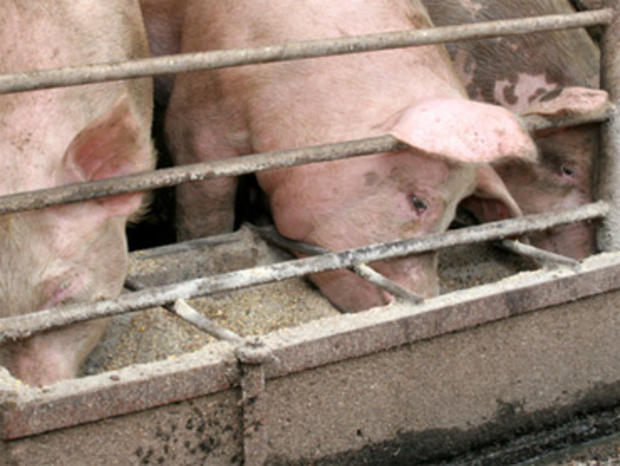CDC: 158 people infected with new strain of swine flu, up from 29 last week
(CBS/AP) The number of Americans with a new strain of H3N2 swine flu has jumped from 29 cases to 158 cases in less than a week, government officials announced Thursday.
Last Friday, epidemiologists from the Centers for Disease Control and Prevention warned Americans to stay safe at state and local fairs, after 12 new cases of the variant strain of the H3N2 flu (H3N2v) were discovered that week. Ten of the cases were tied to the Butler County Fair in southwest Ohio, bringing the year's total to 29 cases.
This week, a wave of new cases confirmed in Indiana and Ohio raised the total to 158 people infected. Thirty of the new cases were in Ohio, 113 were in Indiana, along with one new case in each Hawaii and Illinois.
Most of the new cases have been tied to state and county agricultural fairs where visitors are put in close contact with infected pigs, said the CDC's Dr. Joseph Bresee. Most of the infected are children - probably because many were working closely with raising, displaying and visiting pigs at the fairs, Bresee said.
Another reason behind the jump is that diagnosis of cases has become quicker in the past week. The CDC no longer must confirm a case with its own lab, and states are using test kits to confirm cases on their own, speeding the process along. New patients were likely infected a week or two ago.
The good news is that the flu does not seem to be unusually dangerous, like the strain in 2009 that killed at least 12,000 people. Two of the new patients were hospitalized, but most illnesses have been mild and no one has died. Most or all of the cases appear to have spread from pigs to humans, meaning it's not very contagious between people.
Bresee said more cases are likely in the next few weeks, and he wouldn't be surprised if at least a few involved human-to-human transmission.
Health officials warned last week that attendees at fairs should avoid taking food and drinks into barns and to wash their hands after they're near animals. Pregnant women, young children, the elderly and people with weakened immune systems are especially at risk for developing the flu strain.
The CDC has more on the new strain of H3N2.
